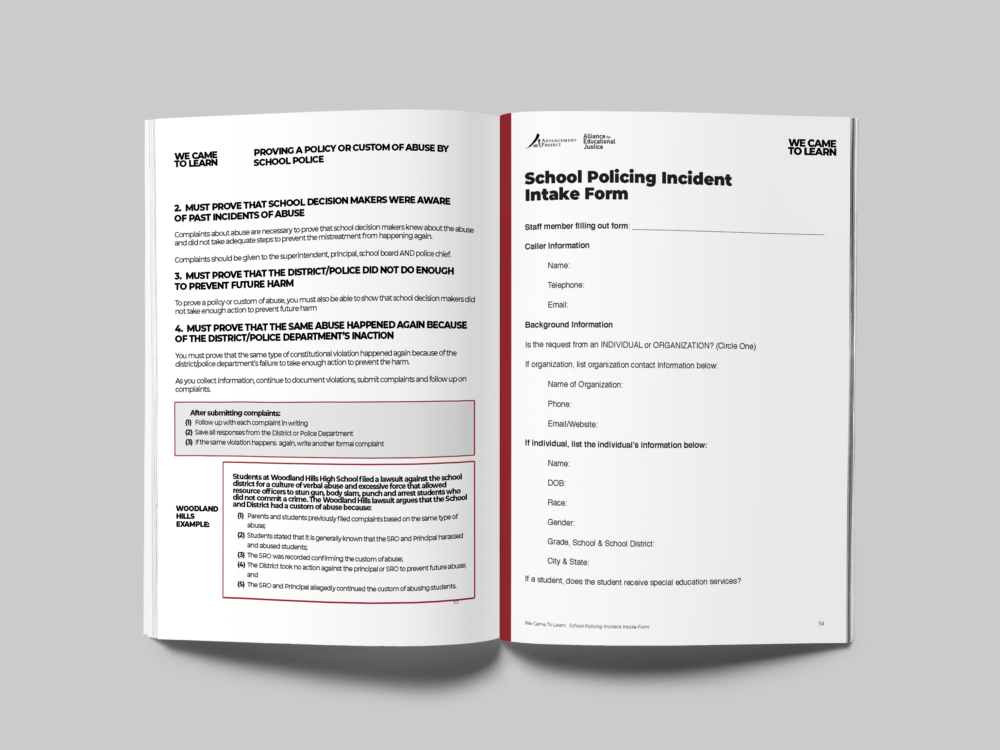Tools to create #PoliceFreeSchools
September 17, 2018

September 17, 2018

Advancement Project’s national office and the Alliance for Educational Justice released a new school report, We Came to Learn: A Call for Police-Free Schools. The report addresses the stark reality that police in schools is an issue of American racial disparity that requires deep structural change.
Through an historical overview of school policing, an analysis of national and city-specific data, and several case studies, the report compellingly makes the case for continued investment in student supports and the removal of police from schools.
The report’s companion ActionKit provides communities with legal resources, organizing tools, and persuasive messaging guidance to help them create and advance the dismantling of school policing.
Read an excerpt of the new report below and download the full report and ActionKit. Join the conversation around school policing on social media by using #WeCametoLearn and #PoliceFreeSchools.
For decades, young people, parents, and advocates have been on the frontlines of the movement to end the school-to-prison pipeline and the criminalization of students of color in the classroom. While organizations have secured major victories – ending zero-tolerance policies in major school districts, securing commitments to fund and implement restorative justice, and shifting the national narrative – the rise and expansion of school policing strategies continue to put students of color, LGBTQIA youth, and students with special needs at risk. Safety does not exist when Black and Brown you are forced to interact with a system of policing that views them as a threat. Advancement Project, Alliance for Educational Justice (AEJ), and our partners and members are resisting the school policing model and demonstrating that communities of color have alternative solutions to school safety grounded in the
experiences, needs, and demands of youth of color. While relationships between police and school districts vary by city and school district, we hope organizations, students, parents and communities use this Action Kit to build power, wage strategic campaigns, and influence local policy at the intersection of policing, racial justice, youth organizing and education.